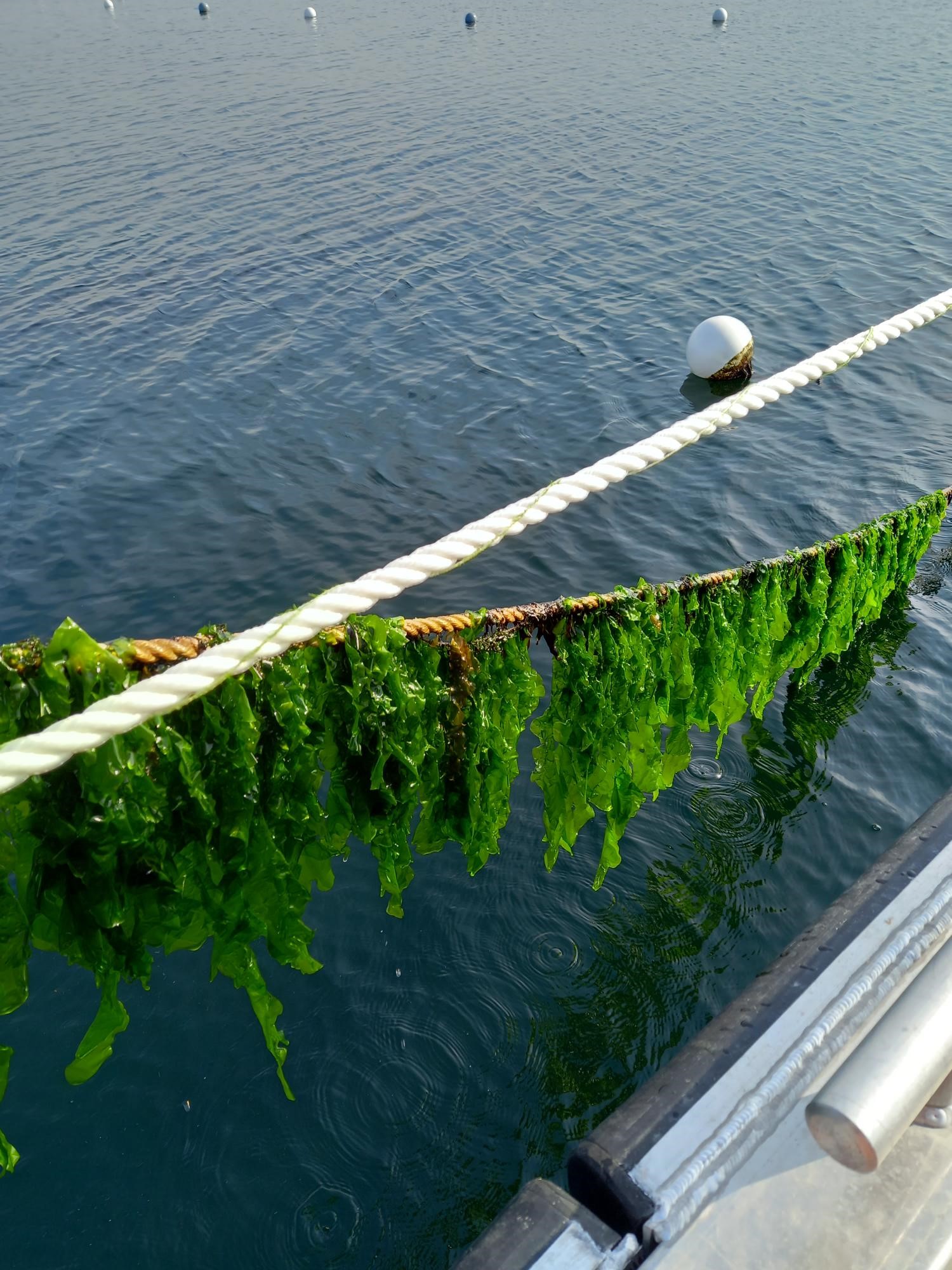
Oceans are a substantial source of protein and not just because of fish. Ulva, a green seaweed also called sea lettuce, is becoming known for its high nutritional value over current vegetable and animal products and it is affirming itself as a great alternative in the food industry.
In a move to address the climate crisis and unsustainable food production systems, the ULVA FARM project has developed an innovative cultivation protocol unlocking the production of low-cost, high-quality Ulva (sea lettuce) at scale. The project, funded under the European Maritime and Fisheries Fund, overcomes the technical challenges of current Ulva cultivation methods and sets the base for scaling-up their supply chain and operations.
The pioneering spin-off Nordic SeaFarm, born from the research of three prestigious Swedish universities and leading the project, with its more than 50 years of experience in seaweed cultivation and marine ecology, is driving the change by shifting the production of Ulva into a cost-efficient, large-scale, off-shore European reality.
The current Ulva cultivation methods are land-based, with very limited possibility of scaling-up, and are costly. As a result, food producers and consumers rely on cheap and low-quality imports from the Asian market. As an example, Sweden imports 75% of its marine raw materials, including fish, shellfish, and algae. The ULVA FARM project represents the needed step towards more self-sufficiency and sustainably produced food.
In the west coast of Sweden, the project achieved the production of 530 spools with early-stage Ulva, resulting in 23 km of seeded line. With their seeding activity in September and October (seemingly the optimal season) they produced 1kg of Ulva per meter of rope. The project has mapped a total 122 hectare of areas suitable for new Ulva scale-up cultivation in the northern part of the Swedish west coast. These areas meet a several criteria, including depth, wave exposure, being outside of nature protected areas, and not in conflict with other uses of the sea (e.g. where aquaculture permits have been granted).
A Nobel Prize feature
To confirm their success, in December 2023, Ulva from the Nordic SeaFarm was served for the second year in a row at the Nobel Prize dinner. This clearly shows that cultivating seaweeds is not only one of the most climate-neutral sustainable food solutions – seaweeds grow without irrigation or fertilizers, sequester carbon and other nutrients, increase marine biodiversity around the cultivation area – but also offers a culinary delicacy worthy of prestigious banquets.
Policy context
In November 2022, the European Commission adopted the communication ‘Towards a strong and sustainable EU algae sector', a pioneering initiative to unlock the potential of algae in the European Union.
The communication proposes 23 actions to create opportunities for the industry to help it grow into a robust, sustainable and regenerative sector capable of meeting the growing EU demand.
The EU is one of the biggest importers of seaweed products globally, and the demand is expected to reach €9 billion in 2030, especially in food, cosmetics, pharmaceuticals, and energy production.
To know more
Check out the press release Nordic SeaFarm’s Seaweed At the Nobel Prize Dinner quoting Nordic Seafarm’s CEO
Watch this project video to get a taste of ULVA FARM’s activities
Follow them on social media
Try out their seaweed products by ordering directly from their website
- Reference
- EMFF-BEW-2020-101038333
- Project duration
- 1 Oct 2021 - 31 Dec 2023
- Project locations
- Sweden
- Overall budget
- €1 209 555
- EU contribution
- €846 68970% of the overall budget
- Project website
- https://nordicseafarm.com/project/ulvafarm/
Stakeholders
Coordinators
NORDIC SEAFARM AB (Nordic SeaFarm), Sweden
- Website
- https://nordicseafarm.com/
